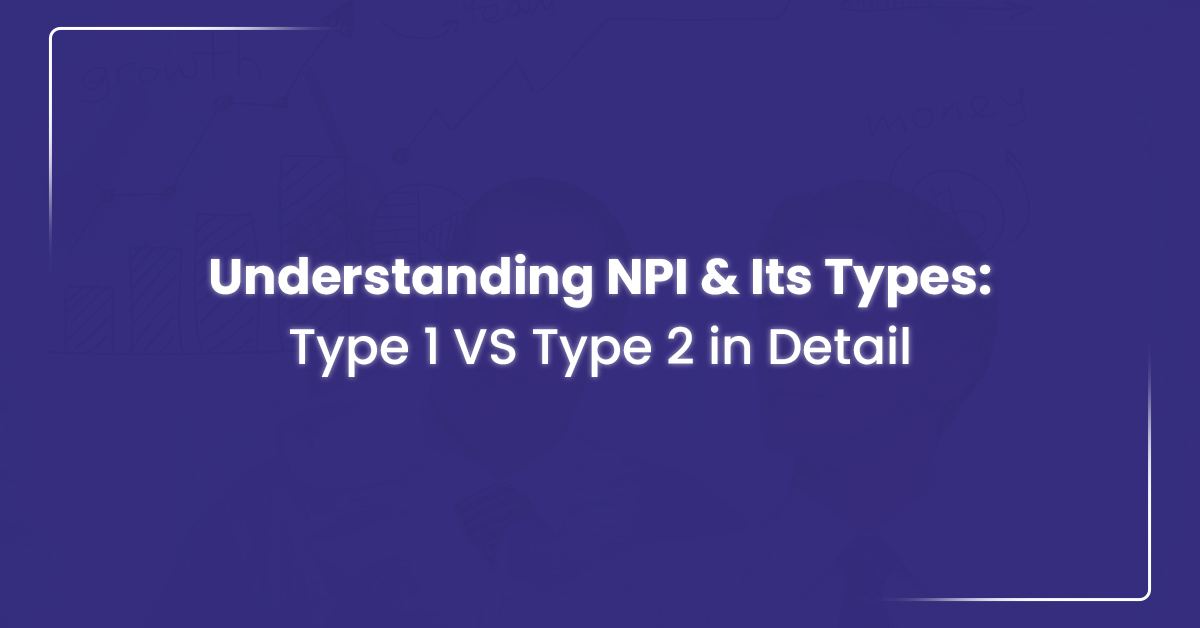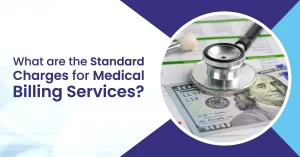Whether you’re a solo practitioner or part of a larger healthcare organization, knowing the difference between NPI types (NPI Type 1 VS Type 2) is important.
This BellMedEx quick guide breaks down the key differences, helping you determine which NPI type is right for your practice. And you’ll also learn about the who, what, when, and how of National Provider Identifier (NPI).
Understanding NPI Type 1 VS Type 2 Numbers
There are two types of NPIs: Type 1 for individual healthcare providers and Type 2 for healthcare organizations.
The only difference between NPI type 1 and type 2 is who they are for. Type 1 NPI identifies the provider of the service, ensuring that claims reflect who performed the work. Type 2 NPI identifies the organization that bills for services, allowing for streamlined payment processes for the group.
In simple words, NPI Type 1 is for individual health providers, such as dentists or family physicians, while NPI Type 2 is for incorporated businesses, such as practices, groups, and hospitals. That’s why they’re also called Individual NPI and group NPI, respectively.
With a Type 2 NPI, an entire practice or healthcare group can credential with a payer simultaneously, making it easy for all providers within that practice to bill under the same organizational identifier.
Do You Need Type 1, Type 2, or Both?
Determining whether you need a Type 1 or Type 2 NPI depends on your practice structure. Let us break it down for you with an example of a dentist.
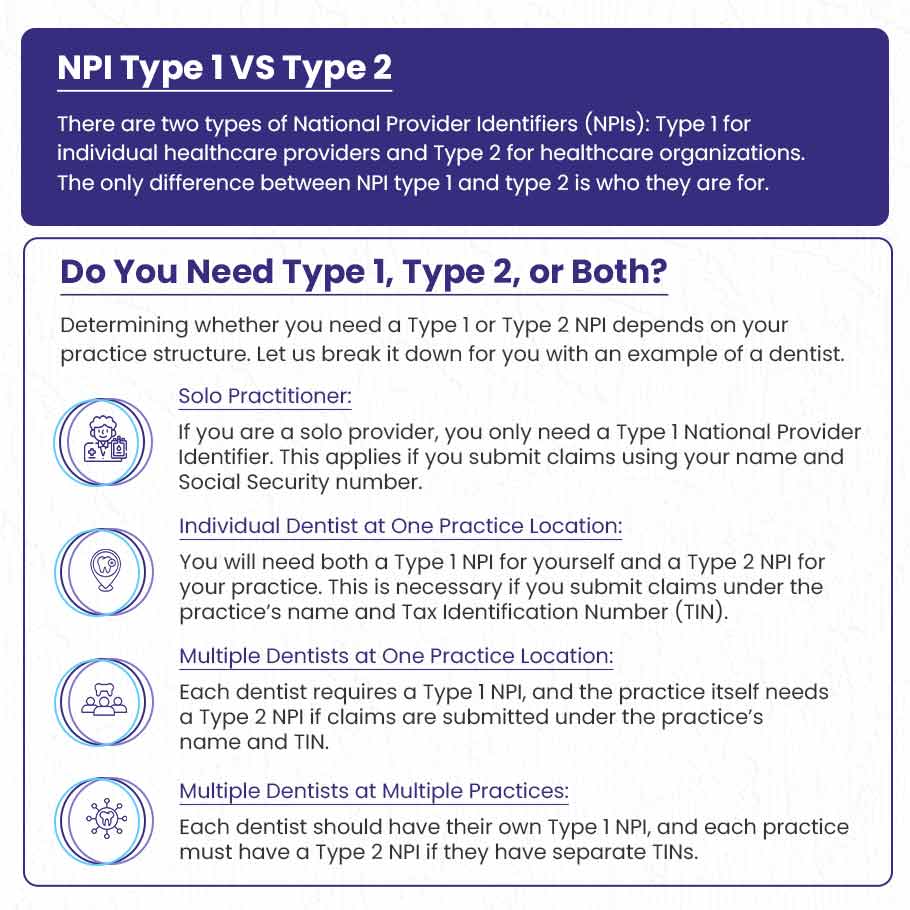
Solo Practitioner:
If you are a solo provider, you only need a Type 1 National Provider Identifier. This applies if you submit claims using your name and Social Security number.
Individual Dentist at One Practice Location:
You will need both a Type 1 NPI for yourself and a Type 2 NPI for your practice. This is necessary if you submit claims under the practice’s name and Tax Identification Number (TIN).
Multiple Dentists at One Practice Location:
Each dentist requires a Type 1 NPI, and the practice itself needs a Type 2 NPI if claims are submitted under the practice’s name and TIN.
Multiple Dentists at Multiple Practices:
Each dentist should have their own Type 1 NPI, and each practice must have a Type 2 NPI if they have separate TINs.
Whether you are an individual practitioner or part of a larger organization, having the correct NPI ensures accurate billing and compliance with HIPAA. Always verify that your NPI details match with payer information to avoid claim denials or enrollment issues.
If you have questions about choosing NPI Type 1 or Type 2, contact us for a free consultation with our healthcare growth specialist at Bellmedex. We can help you pick the right NPI type and simplify the billing process as well.
FAQs About the National Provider Identifier (NPI)
Let us answer some questions about the National Provider Identifier (NPI) now.
What is an NPI in Healthcare?
The National Provider Identifier (NPI) is a unique 10-digit number that identifies healthcare providers in electronic transactions. Required by HIPAA, this number simplifies how providers communicate and process health information. Each NPI is permanent and does not change over time for accurate billing.
Note: Nurses don’t require an NPI, but getting it can be a smart choice to ensure you’re ready for an ever-changing healthcare landscape.
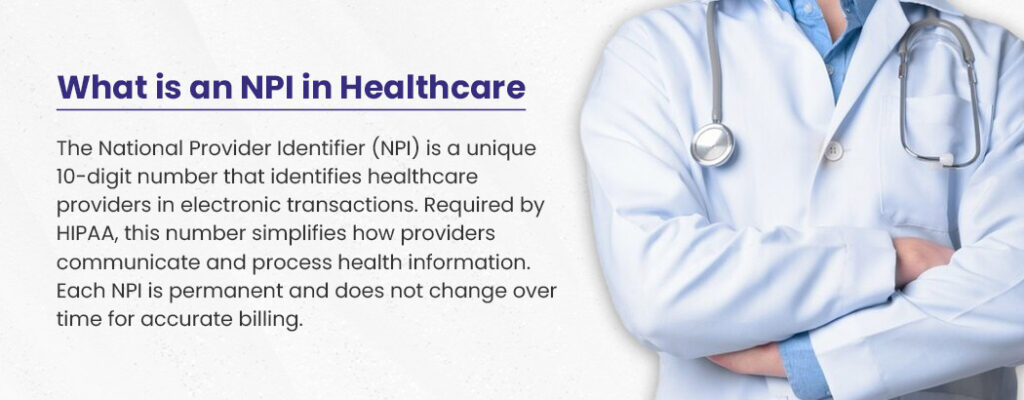
Key Points About NPI:
- Each NPI is a unique identifier and is specific to one provider or organization.
- The number does not contain coded information about the provider.
- NPIs do not expire or change.
- NPIs replace older transaction identifiers like Medicaid or Blue Cross numbers.
- All individual providers and healthcare organizations can apply for an NPI.
- Necessary for all healthcare providers transmitting information electronically.
Who requires an NPI number?
Healthcare providers are considered, “covered entities” under the NPI standard and must obtain a National Provider Identifier (NPI) if they:
- Submit claims electronically
- Use a clearinghouse for claims
- Submit claims attachments electronically
- Check eligibility or claim statuses online
How to get an NPI number online?
Obtaining your NPI is a simple process:
- Visit the NPPES Website and click on “Create or Manage an Account”
- Fill out the application and follow the instructions to submit it online or by mail. (Fax submissions are not accepted.)
- Get your NPI via email within a few hours to 5 business days. But mailed applications may take up to 20 days to process.
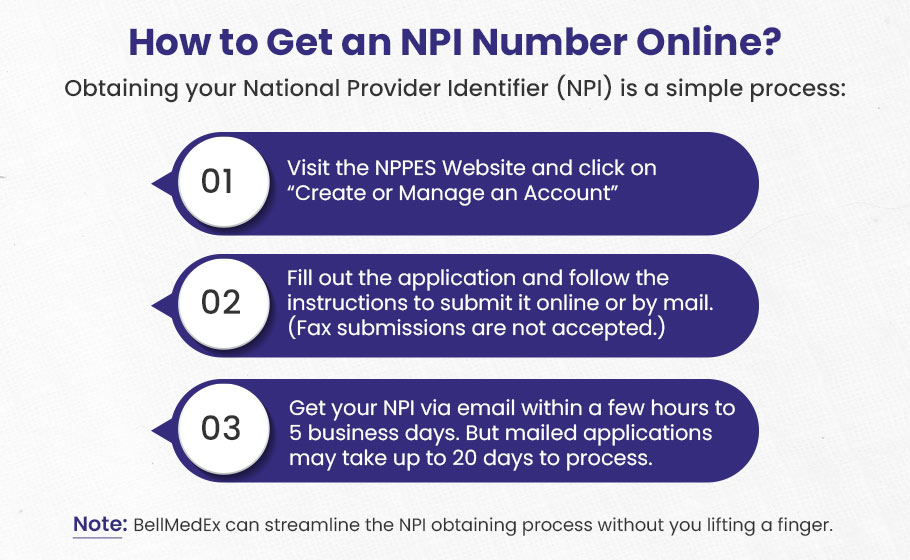
Why get an NPI number in the first place?
You must get an NPI number as a healthcare provider or practice owner because it is required by the law to identify you and your services. But having an NPI benefits you in many ways, such as streamlined identification, location flexibility, and cost efficiency.
- One identifier simplifies transactions across multiple payers.
- You can change your location or specialty without needing new identifiers.
- Reduces administrative costs and simplifies healthcare transactions.
Do I need an NPI if I submit paper claims?
No, you don’t need an NPI if you send paper claims and don’t check patient benefits online. An NPI is not required if you don’t do any electronic transactions under HIPAA. But it’s still a good idea to get one, as it can simplify interactions with various payers by serving as a unique identifier.
Who assigns the NPI to Providers?
The Centers for Medicare and Medicaid Services (CMS) assigns the NPI to healthcare providers in the US through the National Plan & Provider Enumeration System (NPPES).
How will the NPI affect other identification numbers I’ve used?
The NPI replaces several other identifying numbers used in electronic transactions, including Medicaid, Blue Cross and Blue Shield, UPIN, and CHAMPUS. But, it does not replace numbers like Social Security, DEA, or Tax Identification numbers, which serve different purposes.
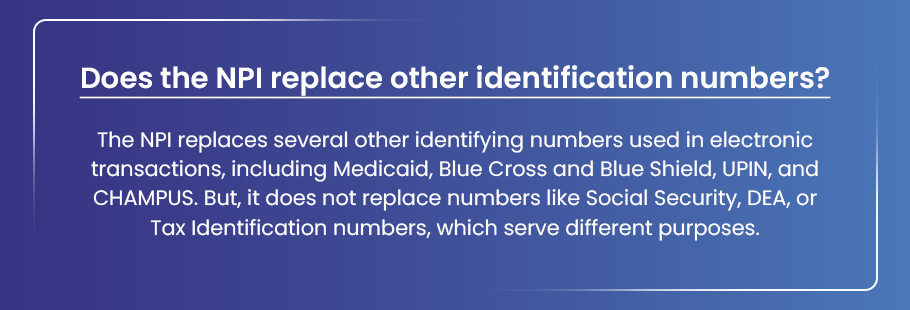
How to link individual providers to a group contract?
Linking individual providers to a group contract varies by payer or insurance company. Some may require an email, others a fax, and some use online portals. But, you will need to fill out an application and provide additional documents.
Can I be credentialed at multiple places with multiple employers?
Yes, you can be credentialed at multiple locations. Just remember that if one employer is out of network with a payer, and another is in-network, it could lead to billing complications for both.
Where can I get help with the NPI application?
We, at BellMedEx, have made the NPI registration process a breeze! We help you streamline the entire process and update your information in the NPPES on-the-go. Speak to our healthcare growth specialist for absolutely free.
